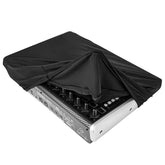Unveiling Excellence: Insights from a Study on Piano Mastery and Practice Techniques
Many people are likely familiar with the 10,000-hour theory. It suggests that everyone can become an expert in any field through ten years of training, including musicians, writers, mathematicians, and more.
Typically, pianists who successfully reach the final stage of international piano competitions have undergone long and rigorous training since childhood. It is estimated that by the age of 13, they have practiced for 2,500 hours, and thereafter, they consistently practice piano for 2.5 hours every day, accumulating 10,000 hours by the age of 21.

However, in recent years, more studies indicate that the key to becoming a master lies not only in the quantity of training but more importantly in the elements of training.
These elements include concentration, goal setting, self-assessment, training strategies, and awareness of the broader environment down to the smallest details.
Have you ever wondered: music teachers often guide students in practice, but students seemingly never have the chance to observe their teachers practicing, and parents only know their responsibility is to ensure their children practice.
So how do teachers and skilled musicians practice? How can one practice more professionally? I believe that beginners, and even those with good skills studying music at the university level, are often puzzled.
A study conducted by the University of Texas in the United States sought answers. They gathered 17 master's students majoring in piano and instructed them to practice a short segment of Shostakovich's first piano concerto (three music passages considered difficult and requiring practice).
All participants had unlimited practice time and were provided with the same sheet music, a metronome, and a pencil. They could leave whenever they felt they had practiced enough and could play at the specified speed requirements a day later.

For fairness, all participants were not allowed to physically or mentally practice the music segment in the next 24 hours.
After 24 hours, the 17 participants were assessed. They were required to continuously play the entire three passages 15 times at the specified speed. The entire practice and assessment process were recorded in both video and audio for analysis.
Recorded details included total practice time, the number of times participants restarted playing, the number of times they successfully played the entire music segment, and the number of times they accurately played the entire music segment, among others.

The researchers (three music professors) also ranked participants based on their tone, characteristics, and emotions.
Results:
1. The practice time of the 17 participants ranged from 8.5 minutes to 57 minutes. Longer practice time did not necessarily result in higher scores.
2. The number of repetitions did not correlate with scores.
3. The more mistakes made during practice, the lower the ranking.
4. Higher rankings were associated with a higher accuracy rate during practice.
The three participants who achieved the highest scores shared several common points that are worth noting:
1. They would pause to think during practice, such as studying the sheet music, making notes, or singing.
2. They immediately corrected the parts where mistakes were made.
3. They accurately identified problematic areas and practiced and corrected them carefully.
4. The speed during practice varied.
5. They repeated target phrases until they could play them flawlessly.
Conclusion:
In summary, during the practice process, better piano performers did not necessarily make fewer mistakes, and there was no evidence showing that they played better initially than other participants.
The key was that more outstanding piano performers dealt with mistakes more carefully and corrected them immediately. Through thoughtful thinking and meticulous practice, they significantly reduced the chances of making mistakes again.
Another point worth noting is that better piano performers would slow down. While this method may not be unfamiliar to many, how many truly understand how to slow down, correct mistakes carefully, establish good posture, strengthen neural pathways in the brain, and gradually increase speed to the desired level?

For students new to music, if they don't establish good habits for dealing with mistakes, they may easily adopt a lax attitude later on. The initial situation may be acceptable, but as they reach a certain level and encounter more complex issues, the skill of correctly handling mistakes becomes essential.
Otherwise, no matter how much time is invested, the performance may never improve. Over time, the motivation to practice decreases, leading to adverse consequences.






